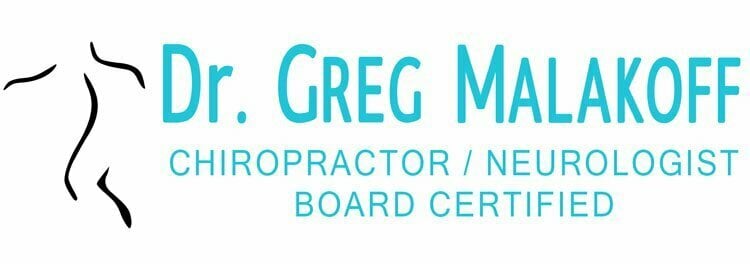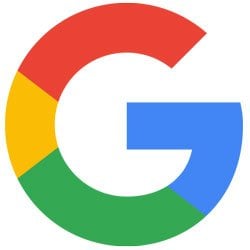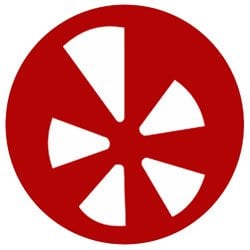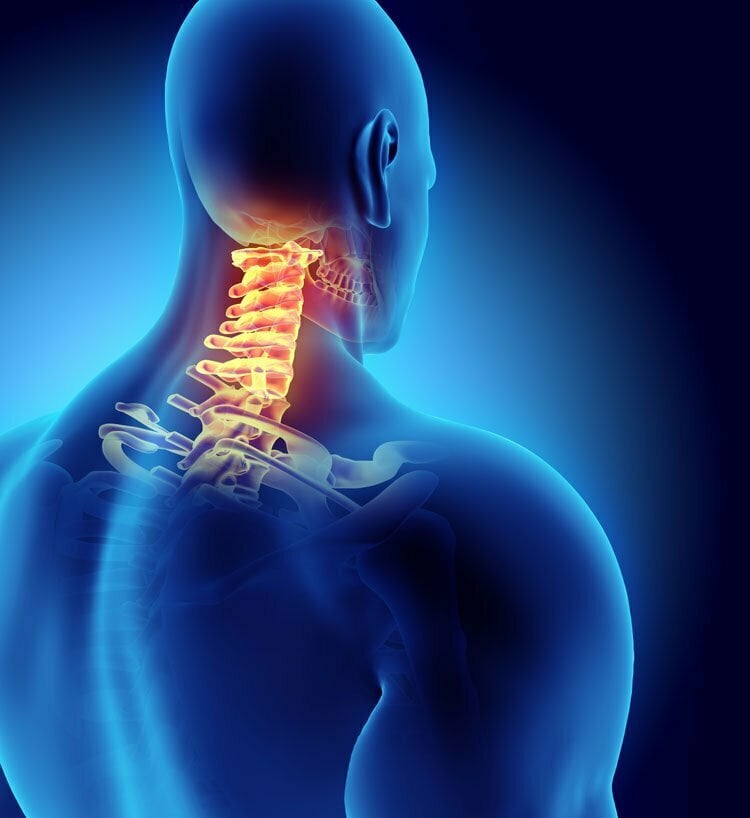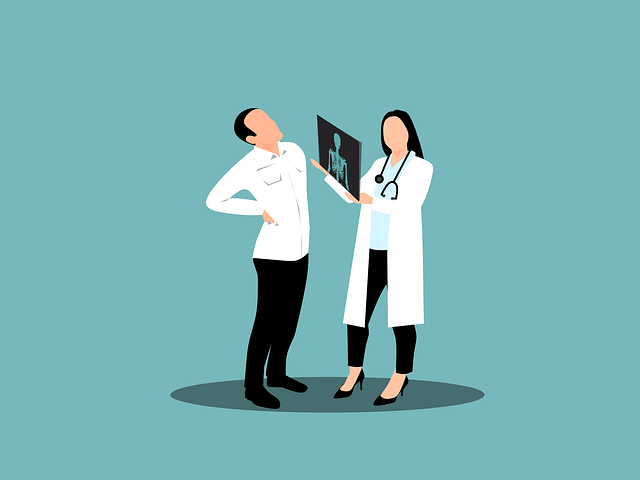The cervical spine plays a key role in how the brain maintains balance, and signals from the injured cervical spine travel through the spinal cord to the brainstem—specifically the vestibular and oculomotor nuclei. This is the same part of the brain that receives the signals from the inner ear, via the eighth cranial nerve. A painful neck can cause overexcitation of the nerve pathways, resulting in altered functioning of the brainstem. These alterations in the brainstem can in turn cause dysfunction in eye motility and balance, since these different systems all work together as the Posture Control System.
Emotional Symptoms • Depression • Anxiety • Hopelessness • Helplessness • Reduced Confidence • Apathy • Irritability • Intense Fear (PTSD) Counsel the patient (use -21 modifier or time code 99354 if E & M time exceeded) MTBI Behavioral Symptoms • Impatience • Anger • Frustration • Confrontational Behaviors • Impulsivity • Anxiety in Car, near scene • Social withdrawal MTBI Social Symptoms • Relationship changes/difficulties • Changed ability to engage in hobbies and leisure activities (LOEOL form) • Decreased ability to perform at work or school (DUD form) • Isolation & increased alienation from others Counsel the patient’s spouse & family MTBI Cognitive Symptoms • Poor Attention • Memory difficulties • Taking longer to think • Confusion & disorientation • Difficulty making decisions • Difficulty planning or organizing • Easily Distracted • Judging distances, spatial relations difficulties • Language comprehension or speaking problem • Headaches MTBI Physical Symptoms • Chronic Pain • Fatigue • Weakness or numbness • Changes in vision, hearing, taste, smell • Sleep Disturbances • Appetite Changes • Dizziness • Nausea • Changes in libido • Lack of inhibition Neurological Injuri
Physical symptoms of brain concussion are OFTEN misinterpreted by Chiropractors as actual physical symptoms. • Headaches, Dizziness, & Chronic Pain are the three most often misunderstood.
National Institutes of Mental Health stated: “Car accidents are a common cause of PTSD”
Whiplash & Motor Vehicle Collisions • “Many individuals who sustain an MTBI are not hospitalized or receive no medical care at all. An unknown proportion of those who are not hospitalized may experience long term problems such as persistent headache, pain, fatigue, vision or hearing problems, memory problems, confusion, sleep disturbances, or mood swings. Symptoms of concussion may appear mild, but can lead to lifelong impairment affecting an individual’s ability to function physically, cognitively, and psychologically.”
There are five major hormones that come from and/or are controlled by the Pituitary gland: (1)TSH; (2)ACTH; (3)LH; (4)FSH; and (5)ADH. The function of these five hormones that have their origin and/or control inside the human brain and they appear to link together these seemingly unrelated concussion symptoms. Concussion can cause the Pituitary gland to not secrete the right amount of TSH which can lead to: Hypothyroidism Hyperthyroidism Too little thyroid hormone causes: weight gain dry skin Constipation cold intolerance puffy skin hair loss menstrual irregularity in women fatigue. Moral of the story: Since excessive fatigue and drowsiness during the day are very common symptoms of brain concussion, REFER these patients to an endocrinologist. Too much thyroid causes: rapid heart rate anxiety weight loss difficulty sleeping tremors in the hands weakness diarrhea sensitivity to light visual disturbances. REFER these patients to an endocrinologist. Corticosteroid chemicals are important in controlling inflammation in your body, helping you handle stress, and controlling your behavior. Cortisol is produced by your adrenal glands (where adrenalin comes from.) When it is secreted, it increases your blood sugar level, suppresses your immune system and helps your body metabolize carbohydrates, fat and protein that you eat. LH affects the production of testosterone produced by the Leydig cells in your body. Studies showed that 80 of concussion patients have low testosterone within one (1) year Testosterone is crucial for the repair and regeneration of tissue (healing) (Refer concussion patients to Endocrinologist) FSH regulates the development, growth and reproductive processes of the body. It is a companion to LH in the reproductive system. It also causes the secretion of Inhibin which, together with Activin, affects your body’s ability to repair wounds (healing the physical injuries from the trauma). ADH affects how much water is reabsorbed by your kidneys so it has an important effect on the regulation of water, glucose and salts in your blood.
Head Injury is Psychiatric Risk Factor Head injury is associated with a higher risk of: Schizophrenia Depression Bipolar Disorder “The authors demonstrated a higher risk of ALL psychiatric outcomes following head trauma… greater than for skull fracture.” PSTHI is the new term that means Psychosis Secondary To Head Injury
Post-Traumatic Vertigo Head injuries occur in 5% of population annually. Head and neck trauma causes tinnitus lasting from 3 to 9 months. Post-traumatic Meniere’s causes imbalance Benign Paroxysmal Positional Vertigo (BPPV) is common after trauma & all of these symptoms need an ENT referral..!!! Post-Traumatic Vertigo by Timothy C. Hain, MD Acute Peripheral Vestibular Injuries Whiplash is a dynamic inertial event. 25% to 50% of whiplash patients have vertigo. 5% to 14% of whiplash patients have tinnitus. 24% to 34% have memory, cognitive and changes in vision. Acute Peripheral Vestibular Deficits After Whiplash Injuries by Vibert & Hausler Vestibular Deficits after Whiplash by Vibert & Hausler Lesions of the Vestibular Organs after whiplash are underestimated because chiropractors erroneously blame the vertigo and dizziness on cervical damage and CNS injury.
Sleep Disorders & Concussion by Castriotta et. Al. Concussion patients had 39% abnormal sleep studies. 23% had OSA (Obstructive Sleep Apnea) 3% had posttraumatic hypersomnia 5% had narcolepsy 7% had PLMS (limb movement in sleep) 21% had significant daytime sleepiness J Clin Sleep Med Dec 2008 Post-trauma Sleep Apnea Patients treated with CPAP reduced from 31 apneas/night to only 3/night However… concussion patients STILL had daytime sleepiness Conclusion: Concussion causes daytime sleepiness independent from sleep disorder. Refer patient to BOTH psychiatrist AND sleep medicine doctor. J Clin Sleep Med April 15, 2009 TBI & Sleep Disorders by Verma & Jayakar TBI is a “silent epidemic” Sleep disorders make concussion healing time longer Recognize and treat BOTH conditions & make referrals to both psychiatrist and sleep medicine doctor CTE – Chronic Traumatic Encephalopathy See the movie “Concussion” to see how Dr. Bennett Omalu discovered Tao deposits in the brains of 4 former Pittsburgh Steelers who committed suicide in the 40s. SPECT Im
Crimes & Concussions Concussions lead to arrest and prison PSTHI (Psychosis Secondary To Head Injury) Concussion = Psychosis = violent crime There is medical evidence that concussions lead to lives of crime. You are REALLY helping your patients when you diagnose concussion and refer them to a specialist. Sleep Disorders & MTBI 46% of concussion patients also have a sleep disorder 25% of concussion patients also have excessive daytime sleepiness Concussions must be recognized, diagnosed and treatment for the MTBI & the sleep disorder must be given to the patient. Moral of the story: Make the referral..!! Concussion and Sleep Apnea “Persons who have sustained a traumatic brain injury are at a significantly increased risk for sleep disorders.” “The effects of untreated sleep apnea on a patient’s cognitive decline and the development of behavioral deficits have only recently been identified.” by Mollayeva et. al. Univ. Toronto, Canada Concussion and Sleep Apnea Patients with Sleep Apnea make snoring and gasping noises in their sleep. Each gasp sound indicates breathing had stopped. Each time breathing stops, blood oxygen levels drop (damaging cells in the body). This leads to high blood pressure, stroke, heart failure, diabetes, depression & more. Moral of the story: Find the concussions and make referrals so your patients get wel
Concussion and Sleep Apnea 1.7 million TBIs in U.S. every year Only 1.4 million seek treatment 250,000 hospitalizations a year 50,000 deaths a year 70-90% of these are MILD TBIs 72.5% have impaired sleep/wake disturbances which developed AFTER the TBI 55% of concussion patients have insomnia but only 34% develop OSA
The development of Psychosis Secondary to Head Injury is virtually the same incidence whether the head injury is mild, moderate or severe. Severe TBI causes a higher INITIAL risk Mild TBI causes LONGER psychosis symptoms Arch Gen Psych
Major Depression & TBI “Major depression is a frequent psychiatric complication among patients with TBI.” 33% of patients with TBI were diagnosed with MAJOR depression” within 1 year of the TBI 76% of those had comorbid anxiety 56% had aggressive behavior Arch Gen Psychiatry 200
Early Predictors of PCS There are only 3 concussion symptoms that can accurately predict long term post concussion syndrome (PCS) Anxiety Noise Sensitivity Trouble Thinking When these 3 are present refer IMMEDIATELY
